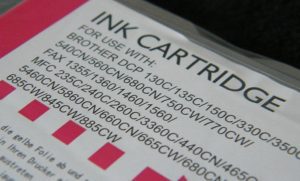Smart technology is taking over our home lives, with home functionality growing increasingly common by the year. Less well known, though still on the rise, are the intelligent systems that are reshaping established business norms. From major overhauls of existing systems to smaller additions with big consequences, this technology demonstrates a new status quo, at least for forward-thinking businesses.
Security Systems
Security systems are always a crucial part of business, but they’re also systems that can be demanding on time and resources. Smart functionality can provide ways to both reduce this overhead and create systems that are more secure through constantly evolving software.
Facial recognition can be a great way through which this is implemented, as it interfaces with staff within a business database. Connected to security systems, facial recognition on security cameras could work to unlock access without the need for fumbling with keys. This can be especially useful for staff on exterior doors at night time, where saving time can reduce the chances of ingress.
Facial recognition can also be used to take note of strangers that constantly poke around and look suspicious, building an accurate and automatic database that can later be referred to. This technology can also be linked to the phones of relevant staff, to quickly allow the checking of unexpected arrivals and developments.
Finally, smart security systems can also be used to better determine whether video data should be stored or deleted. As high-quality data can use a lot of space, having a smart system delete unnecessary content can be a great way to save on costs, and reduce the wear on storage media over time.
Environmental Controls
Controlling a work environment is a must to keep staff happy, healthy, and efficient, but it can also be a costly procedure. If left to manual controls, people can off use the wrong settings or forget to turn off systems before they leave. Over time, this can add up to huge and unexpected bills, which smart technology can completely avoid.

The biggest savings in environmental controls tend to relate to thermostats and air conditioning. When using smart options, these controls start by scheduling power on from just before staff arrives to when they leave, eliminating the risk of wastage. They can also work to detect differences in the air quality and humidity, changing settings on the fly to suit how many staff are in the area, and the temperatures at which most staff feel comfortable.
Light controls work in much the same way, turning off and on whenever people are present based on movement detection and timers. Advanced lighting systems can also modify output depending on the time of day and exterior lighting conditions, further saving power and helping ease staff eyes by reducing the amount of blue light present.
Chatbots as Support
One of the big developments making headlines around the world recently in smart technology is the arrival of advanced AI chatbot programs like ChatGPT. These systems have made big strides in improving automated support systems, understanding poorly phrased requests, and cutting down on wasted staff time. As these improve, they’re reforming one of the most expensive and stressful parts of a business.
Device Enhancements
It’s not just the big systems that are improved by smart functionality either, as even smaller tools have seen significant improvements through smart functionality. One example here could be found in floor care systems like a scrubber dryer. New versions of these systems use smart systems to extend battery life, delivery the right amount of solution, and otherwise maximize autonomy. This saves money, makes the machine more user-friendly, and is generally superior to older solutions.
This same is true for machines that hook up to the IoT. One common example around the office could be a new printer which, when running low on ink, automatically orders more for the business. Since running out of ink is so common and can be so detrimental to business flow, these solutions can be real game changers.

As we move further into the 2020s, smarter technologies in business will set a new standard that traditional systems won’t be able to follow. It’s often a case of evolution or death, but this isn’t a bad thing. Properly adopted, smart technologies can result in hugely reduced overhead, meaning more profit for a business, and better pay for its staff. It might have a slight learning curve, but with so much potential around the corner, these are technologies well worth learning.



































